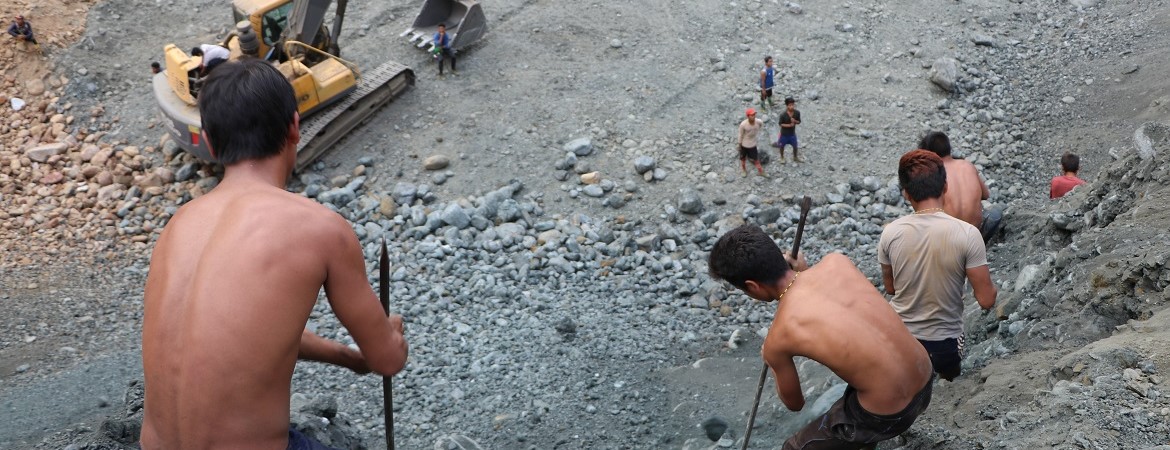Sustainable Lives in Scarred Landscapes: Heritage, Environment, and Violence in the China-Myanmar Jade Trade

2018-2021
'Sustainable Lives in Scarred Landscapes: Heritage, Environment, and Violence in the China-Myanmar Jade Trade' is funded by the British Academy GCRF Sustainable Development Grant: Heritage, Dignity & Violence - £299,995 - and its focus is on collecting life stories that reflect the complexities and nuance of how jadeite is implicated in everyday lives in this region.
Jade is one of the most culturally valued minerals in China. Yet, few Chinese consumers know that its most precious form, jadeite, comes from mines in northern Myanmar and is implicated in one of that country’s longest civil wars. The value of the trade is vast - some estimates say up to 48% of Myanmar’s GDP in recent years - but this wealth is now largely out of the hands of local people.
This project seeks to reconnect these disconnected histories, experiences, and understandings of jadeite.Debates relating to the Myanmar jadeite industry to date have focused almost entirely on issues of mine governance, yet the importance of jadeite on human development in the region, especially during the violent years of civil war from 1961-94, needs to be better understood. Changes following a series of ceasefires in the mid-1990s led to dramatically increased environmental degradation around the mines and economic pressures on local households, which in turn contributed to the return to conflict in 2011. This ongoing conflict in the north continues to have serious implications for the national peace process.
The key concern of sustainable human development influences the research team’s desire to ‘re-gender’ the history of the jadeite trade, with lessons for current and future planning for an equitable society recovering from conflict in which women’s roles and rights must be respected. By bringing these experiences and histories also to a Chinese audience, the team hopes to facilitate greater understanding of the human development issues of the jade trade among jadeite consumers, encouraging more sustainable solutions based on notions of a shared resource heritage.
Project team
Professor Mandy Sadan
(GSD, Warwick, Principal Investigator)
Mandy's collaborating partners are Professor Dan Smyer Yu, Kuige Professor of Ethnology, School of Ethnology and Sociology, and the National Centre for Borderlands Ethnic Studies in Southwest China at Yunnan University and the research team led by Danseng Lawn and Naw Tun Lamai at the Kachinland Research Centre, Myitkyina, Myanmar, with Dr Henrik Møller (GSD, Warwick) as a post-doctoral research fellow.
They are also working with PositiveNegatives and Siobhan Warrington, founder of Oral Testimony Works.

